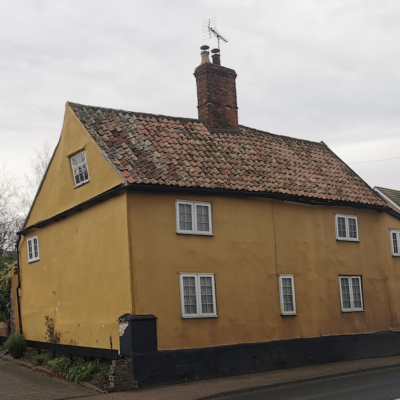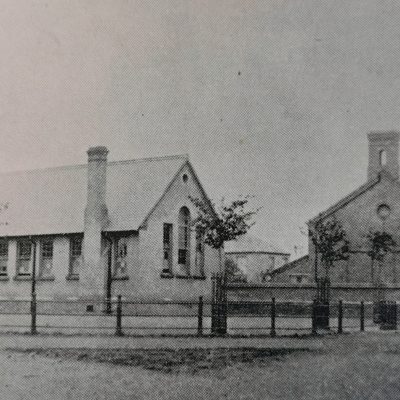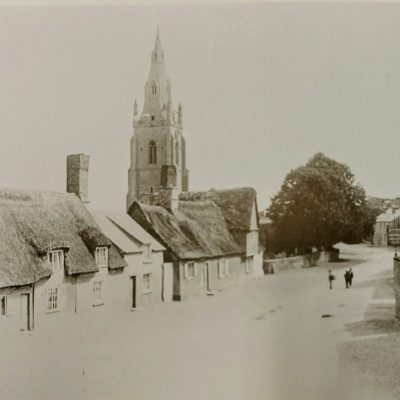Search by topic
- archaeology
- Building of Local Interest
- chapel
- charity
- church
- crime
- dressmaker
- fire
- Great Eastern Railway
- Listed building
- Mapping Relief
- medieval
- oral history
- poverty
- Public House
- Religious House
- Roman
- scholar
- school
- Then and Now
- tudor
- women
- work
- world war one
- world war two
Search by text
Willingham Fires 1830 & 1859
History of the Willingham Fires 1830 & 1859
1830
London Evening Standard 24/11/1830
We deeply regret to have occasion to announce one of the most extensive and alarming conflagrations that has taken place since the terrible incendiary system has been at work. On Sunday evening, soon alter seven o’clock, fire broke out in the homestall of Mr. William Huckle, a large farmer at Willingham, in Cambridgeshire, which spread with extraordinary rapidity, and in the course of a few hours laid waste five farm-houses, with the barns belonging to them, containing wheat and other corn, a vast extent of outbuildings, upwards of 40 sacks of wheat, barley, oats, beans, and hay, and 10 or 11 cottages. The homestalls to which the fire extended belonged to Messrs. Few, Osborne, Beddall, and Barnes, who, with Mr. Huckle, are the principal farmers in the parish. The fire commenced on a straw-stack belonging to Mr. Huckle, the produce of some corn he had incautiously thrashed with a machine last week. Of the extent of the damage no correct estimate can at present be formed. There were eleven engines in attendance from Cambridge and the other neighbouring towns; but such was the fury of the devouring element, and so intense the heat, that for some hours no effectual assistance could be rendered. The fire was raging the whole night, and continued its devastating course at eight o’clock on Monday morning. It was seen distinctly at Ely, Huntingdon, Newmarket, and for a circuit of upwards of 20 miles. Night may truly be said to be made hideous by such lamentable scenes. Two other fires took place in the neighbourhood last week; one was Bluntisham, in Huntingdonshire, three miles from Willingham and the other at St. Ive’s Heath. At the former place a stack was set fire to but by timely exertions it was got under before any material damage was done. The fire at St Ive’s Heath broke out on a strawstack belonging to Mr. Seakins, which it consumed with part of a thrashing-machine. Some corn and buildings adjoining were fortunately saved. The farmers in the neighbourhood are in a dreadful state of alarm, letters having been sent to many of them threatening the destruction of their property.
…………………
Cambridge Chronicle 26/11/1830
FIRE AT WILLINGHAM.
On Sunday evening last the inhabitants of the very populous village of Willingham, in this county, were thrown into a state of considerable alarm and excitement by the breaking out of a fire at the further end of the place. The flames were first observed issuing from a straw stack the premises of Mr. Few, situate in the farm-yard, and adjoining the stables and barn, contiguous to which and in nearly parallel line were the buildings and residences of Mr. Biddall, Mr. W. Huckle, and Mr. Osborn, and at the extremity were four tenements, occupied by poor cottagers, the property of Mr. King. The individual who first discovered the fire was Mr.Osborn himself; he had been spending a few hours with his brother at a neighbouring village, and when at, a short distance he perceived a somewhat strong light, and coming up to Mr. Few’s gate he saw flames from the straw stack just bursting forth, and immediately gave an alarm, the same time releasing his own stock and using his best endeavours to arrest the progress of the devouring element. Nearly all the occupants of the different premises, and indeed a great portion of the whole village, were at the time at the meeting-house, and a rather long period elapsed before any efficient assistance was rendered, whilst from the nature of the buildings and their contents the flames had gained a considerable ascendancy before any engine could brought into operation. The fire speedily extended to the barns and premises of all the four above-named individuals, and between nine and ten o’clock the different estates presented an awful, imposing, and almost entire body of flames, which continued to rage for some hours, and until the whole property on four farms was destroyed, together with the dwelling-houses (except, a portion of Mr. Few’s) and the four tenements. The barns were all full, and quantity of hay which fell a sacrifice was very considerable; several hundreds of pigeons belonging Mr. Osborn were destroyed, and one filly, a calf and a pig were likewise burnt to death. We believe almost the only portion of the property saved was six small stacks of beans, oats, &c. belonging to Mr. Osborn, which were situate at the back of his premises, and the greater part of Mr. Huckle’s household furniture. It was a most providential circumstance that the wind laid in such a direction as to carry the flames from Mr. Few’s farm-yard towards the four tenements, which formed as it were the extremity the village, and adjoined the common, which, of course, prevented their further extension, or otherwise it is impossible to calculate the probable destruction of which might have ensued. It is a matter of much surprise that great personal suffering was not experienced at the meeting-house, as of course upon the first alarm every individual rushed to the doors, but fortunately, we believe no person received any serious injury. Every possible assistance was rendered by all classes, who were collected from some miles around. Some idea may be formed of the distressing scene which presents itself, when we state that the extent of premises destroyed exhibits a desolated area of at least an acre and a half. The fire was seen from this town almost immediately after it commenced, and without any intimation as to the the precise situation of the conflagration, the Norwich Union engine was instantly dispatched, and proceeded with such alacrity as to be brought lo bear upon the flames within about ten minutes after the Willingham engine itself; even when at Longstanton, which is within two miles of Willingham, none of the villagers could state where the fire was raging. The Cottenham engine arrived soon after, the conductors of which very promptly supplied the Norwich, finding that from its situation it would prove the most effective; these were speedily followed the Royal Exchange from this town. The extent of damage is estimated at from £3,000 to £3,500 and it is a some-what alleviating fact to learn that the property was insured to the greater portion of the amount in the Suffolk fire-office. An immense number of individuals visited the spot in the course of the following days, particularly from this town, where during the whole of Sunday evening the conflagration was very visible: in fact the flames were observable until they were finally extinguished about five o’clock the following morning.— It is with feelings of the deepest sorrow and regret we have to record the above melancholy and ruinous event as most unquestionably to have been the diabolical work of some debased and reckless human being, who, if he were not indeed entirely lost to all feelings of humanity and commiseration, could but have witnessed the heart-rending scene with the bitterest remorse and self-condemnation.
We are informed that a reward of £500 will be offered for the conviction of the incendiary and that application will made to Government to issue a proclamation mentioning the reward, and offering a free pardon, except to the incendiary himself. The statements of the above fire inserted in the London papers are gross exaggerations, and in some respects totally false. No threshing machine has been used in the village for the last five years, and no attempt was made to cut the pipes of the engines, but every facility rendered to extinguish the flames; the fire did not originate upon the premises of the overseer.
……………………………………
1859
Cambridge Chronicle 3/9/1859
DREADFUL FIRE AT WILLINGHAM.
On Thursday last about 12 at noon, the quiet village of Willingham was visited one the greatest calamities, perhaps the greatest, that has been known its neighbourhood for a very long period, and the loss which accompanied it was enormous: the whole of the grain of every description (this year’s produce), the hay, straw, agricultural implements, and about sixteen dwelling houses were entirely destroyed.
The fire commenced on the premises of Mr. Robert Read, farmer, Rampton End; and as the wind was rather strong, it caused the raging flames to spread a very considerable distance, and as they spread they carried everything before them. The damage is not as yet very accurately ascertained, but from the fact that of the newly stocked grain not a particle is to be seen in the village, that sixteen farms are entirely, or almost so, destroyed, and from the following estimates of the destruction caused, our readers will be enabled to form some calculation of the amount of injury.
Mr. R Read’s premises and farm, consisting of barns, stables, granaries, piggeries, gighouse, outbuildings, and the produce of nearly thirty acres of corn, with the straw, poultry, and most of the agricultural implements fell before the devouring element; the house in this case was saved: the property was insured.
Mr. Ambrose’s farm, consisting of 20 acres of corn, hay, and straw, with the greater part of the agricultural implements, poultry, household furniture, was destroyed; this property was also insured.
Mr. James Pyke’s dwelling-house, farm buildings, &c, 100 acres of corn, hay, and straw; insured.
Mr. James Rogers’ house, premises, stack of hay and straw; the furniture was partly saved; insured.
Mr. Jonas Few, stack-yard, two wheat stacks, two bean stacks, one stack of oats, and a large quantity straw.
Mr. Berry Tibbitt, house, premises, furniture, and other effects; insured.
Three thatched cottages, in the several occupations of Messrs. C. Garner, John Few, and John Ambrose, were destroyed: not insured.
Mr. David Stanton, farm premises, &c, entirely destroyed; part of the dwelling- house was saved. This person’s loss comprises about 20 acres of corn, with straw, poultry. &c , and fanning implements, all of which were happily insured.
Two cottages and outbuildings, in the several occupations of Messrs. B. Jakes, and T. Norman. The furniture was partly saved, but nothing was insured.
The fire had as yet, taken an easterly direction but now it began to spread its devouring flames in N.N.E. direction.
Mr. Joseph Gleaves, brewer, premises, consisting of brick buildings, eight stacks of corn, farm implements, poultry, and one large hog were destroyed; the dwelling-house was saved: insured.
Mr. Thomas Ling’s farm was entirely destroyed. 50 acres of corn, hay with straw, implements, furniture, poultry, &c.. were all consumed: insured.
Mr. Howlett’s house, grocer’s shop, barn, out-buildings, stock-in-trade were destroyed: the furniture was destroyed; insured.
Mr. Wright Few’s bakehouse, premises, stock-in-trade, and 25 acres of corn with straw were nearly all consumed: the furniture was partly saved; insured.
The farm-house, premises 27 acres of hay, part of farm implements, household furniture, and poultry Mr. John Smith were devoured by the flames; this property was also insured.
Mr. James Robinson’s premises, farm buildings, implements, fifteen acres of corn, hay, and straw were destroyed; one brick cottage saved: insured. The engine stationed at this house stopped the further progress of the devastating flames.
The origin of the fire, yet, remains a profound mystery, but rumours are afloat that it is the work of some incendiary, and the police are making diligent search to obtain the offender, or to ascertain how the fire was caused. At a rough estimate, the damage does not amount to less than £10,000. We are happy to state that no lives were lost, which probably would not have been the case had the fire happened in the night: as it was, a very singular thing, the fire commenced at midday, and in about two hours had finished its work of destruction. Five men were severely burnt in getting out the furniture from the house of Mr. Few, the roof falling in at the time. It is very surprising that no one had the forethought to send for the Cambridge engines as soon as the fire broke out.
……………………………………………………………….
Cambridge Chronicle Saturday 10th September 1859
THE LATE FIRE WILLINGHAM.
The mystery which attached to the origin of the late disastrous conflagration has been cleared up by the indefatigable inquiries of the police, and it is a relief to find that it is attributed to carelessness rather than malice. In the absence of the completion of the survey by the agents of the various Insurance Offices, we are still unable to approximate nearer to the amount of the damage than a rough guess of £10,000, which will fail upon the offices, the names of which are attached to the names of the various sufferers, viz.:—
Mr. R. Read, occupier, Mr. Benjamin How, of Broughton, owner; both insured in the Alliance.
Mr. Ambrose, owner and occupier, and son occupier, the Unity.
Mr. Joseph Gleaves, owner and occupier; in the Yorkshire.
Mr. James Pyke, owner and occupier; in the Unity.
Mr. Ambrose, owner and occupier; in the Unity.
Mr. John Smith, owner and occupier; in the Suffolk and Yorkshire.
Mr. James Robinson, owner and occupier; corn in the Unity, and buildings in the London and Yorkshire.
Mr. W. Howlett, owner and occupier; house in the Unity, and furniture and stock the Suffolk.
Mr. David Stanton, occupier. Mr. Wells, of London, proprietor; both insured in the Unity.
Mr. Mark Rogers, occupier, Mr. John Dodson, of Swavesey, proprietor; farming property insured in the Unity, and furniture in the County.
Mr. Wright Few, owner and occupier; buildings, corn, furniture and stock-in-trade insured in the Manchester and Liverpool, but for only £300.
Mr. Berry Tebbitt, owner and occupier; furniture the Unity, and house in the Suffolk.
Mr. Jonas Few, owner and occupier; in the Yorkshire.
Three thatched cottages, occupied by C.Garner, John Few, and Ambrose, the property of Mrs. Wilderspin, of Swavesey; in the Unity.
Two cottages, occupied by R. Jakes and T. Norman, owner Mr. John Sneasby, of Willingham; the buildings insured the Unity for £110.
A cottage, in the occupation of Joseph Ingle, the property of Mr. Wm. Few, jun., of Willingham; house and furniture in the Union.
Mr. Thomas Lingo, owner and occupier; house and farm premises in the Norwich Union and Yorkshire.
From the outset it was known to the police, who were represented by those active officers, Superintendent Stretton and Inspector Long, that a boy was the only person on the premises of Mr. R. Read at the time and near the the spot where the fire broke out. This lad is about nine years old, and the son of Mr. Read; but obstacles were thrown in the way of the examination of this boy by the officers, and indeed many of the inhabitants appeared but too willing to attribute the origin of the fire to the malice of an incendiary, and dark links were thrown out affecting the character of several respectable persons. The boy Read, on the breaking out of the fire, ran to his grandmother, and communicated the fact that it was raging in a straw stack on his father’s premises; but whenever he was questioned on the matter, answers were suggested to him by the by-standers, and he was thus prevented from confessing the truth. On Saturday, however, the Cambridge division petty sessions, Stretton applied for and obtained a warrant against the lad, and this was executed on Monday, by Long, who found the boy alone in Rampton field, and he was at once taken before A. Cotton, Esq. at Impington. Mr. Garratt, Cambridge, appeared for Mr. Read. This proceeding cleared up all doubts on the matter, for the boy made a statement to the effect that on the morning of the fire, he left home to go and keep pigs in Rampton field, and before doing so, and in the presence of his mother, took a match box off the shelf, telling her it was for the purpose of lighting a fire in the field. He did not, however, light the fire as he had intended, but on his return, put the pigs into the stye, assisted his grandmother, who then left him and went into the house. He went down the stack yard, intending to into the orchard to get some pears, and when near a stack struck a match on a stone, and threw it in a burning state on the ground. Some loose straw ignited, the flame communicated with a straw stack, and hence all the ulterior damage. He then, he said, ran in at once and told his grandmother. It is a pity these facts were kept so long from the knowledge of the officers, who could have but one object, the eliciting of the truth, and if the insinuations so liberally dealt in were true, the apprehension of the guilty party. The boy was once discharged, his father’s recognisance in £25 being taken for his appearance when called upon.
Contribute
Do you have any information about the people or places in this article? If so, then please let us know using the Contact page or by emailing capturingcambridge@
Licence
This work is licensed under CC BY-NC-SA 4.0








